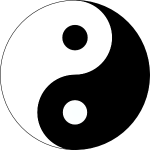 We (Edith Hope Fine and Judith Josephson) are the Grammar Patrol. Both of us taught for years and are now writers, with thirty plus books between us, including our two popular grammar guides, Nitty-Gritty Grammar and More Nitty-Gritty Grammar. For close to twenty years, we taught writing and grammar basics and now we blog about grammar for writers.
We (Edith Hope Fine and Judith Josephson) are the Grammar Patrol. Both of us taught for years and are now writers, with thirty plus books between us, including our two popular grammar guides, Nitty-Gritty Grammar and More Nitty-Gritty Grammar. For close to twenty years, we taught writing and grammar basics and now we blog about grammar for writers.
Dangling Participial Phrases!?
 Isn’t dangling for earrings, bungee jumpers, or grapes on the vine?
Isn’t dangling for earrings, bungee jumpers, or grapes on the vine?
Alas, no. Participial phrases can also dangle, like this:
Rounding the bend, the medieval church loomed in the distance.
That ancient church is on the move!
English runneth over with modifiers: adjectives, adverbs, clauses, phrases, and participial phrases. Participles and other modifiers are easily (and often humorously) misplaced. In addition, they distract your readers. Today we’ll concentrate on dangling participial phrases.
What is a participle anyway?
You’ll recognize these verb forms. With regular verbs, participles end in ing (present tense), and d, ed, or t (past tense).
giggling cleaning dreaming
giggled cleaned dreamt

 You need to pack a clear understanding of adverbs in your writer’s toolkit. Don’t use an adverb when a powerful verb can do the job. Bag adverbs completely? They do have their useful purpose, as in “The bobcat crept soundlessly toward the plump rabbit.”
You need to pack a clear understanding of adverbs in your writer’s toolkit. Don’t use an adverb when a powerful verb can do the job. Bag adverbs completely? They do have their useful purpose, as in “The bobcat crept soundlessly toward the plump rabbit.” After years of teaching writing, writing articles, editing, working with authors, and meeting in writing groups; I get it. Writing is a process. My former high school students would toss off one draft and be ready to turn it in. “I’m done!” they would announce.
After years of teaching writing, writing articles, editing, working with authors, and meeting in writing groups; I get it. Writing is a process. My former high school students would toss off one draft and be ready to turn it in. “I’m done!” they would announce.